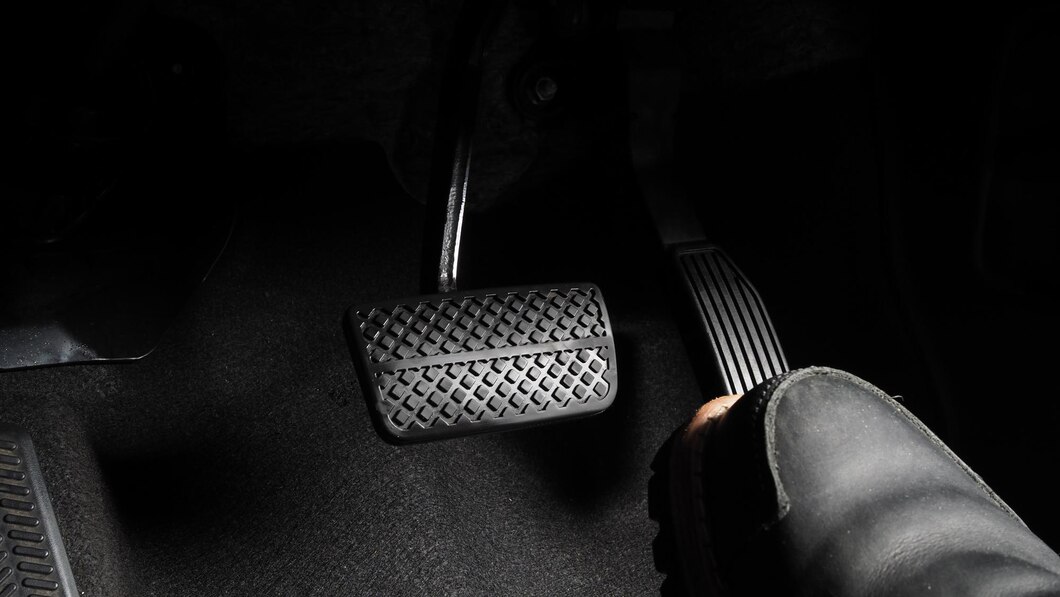Your car’s braking system is one of the most critical safety features, allowing you to control your vehicle and avoid accidents. Central to this system are the brake lines, which carry brake fluid from the master cylinder to the brake calipers. Over time, brake lines can corrode, especially in regions with harsh winters or high humidity. Recognizing early signs of brake line corrosion can prevent dangerous brake failures and costly repairs. Here’s what to look out for:
1. Soft or Spongy Brake Pedal
One of the most common signs of corroded brake lines is a soft or spongy feeling when you press the brake pedal. This occurs because corroded brake lines can develop tiny holes or cracks, allowing air to enter the brake system. Air in the brake lines reduces the system’s hydraulic pressure, making the pedal feel less firm.
2. Visible Rust and Corrosion
Regular visual inspections of your brake lines can reveal early signs of corrosion. Look for any rust or discoloration on the metal surfaces of the brake lines, especially around the connections and fittings. Corrosion often appears as a flaky or scaly buildup, which can weaken the lines and lead to leaks.
3. Brake Fluid Leaks
Brake fluid leaks are a serious indication of corroded brake lines. If you notice puddles of clear or slightly brown fluid under your car, particularly near the wheels, it’s likely brake fluid. Leaks can reduce braking efficiency and, in severe cases, cause brake failure. If you suspect a leak, inspect the brake lines for signs of corrosion and damage.
4. Warning Lights
Modern vehicles are equipped with brake system warning lights on the dashboard. If the brake warning light or ABS light illuminates, it could indicate a problem with the brake lines. These warning lights can be triggered by a drop in brake fluid pressure, often caused by leaks from corroded lines.
5. Decreased Braking Performance
Corroded brake lines can cause a noticeable decrease in braking performance. If your car takes longer to stop or the brakes feel less responsive, it could be due to corroded lines leaking brake fluid. This is particularly dangerous in emergency situations where quick stopping power is essential.
6. Unusual Noises
Unusual noises when braking, such as squealing, grinding, or hissing, can be a sign of brake line issues. A hissing sound can indicate a leak in the brake lines, while squealing or grinding often points to worn brake pads or rotors, which can be related to an overall failing brake system, including corroded lines.
7. Brake Pedal Sinks to the Floor
If the brake pedal sinks to the floor when you apply pressure, it’s a clear indication of a serious problem. This can happen if the brake fluid is leaking due to corroded brake lines. Without sufficient brake fluid, the hydraulic system cannot generate the necessary pressure to engage the brakes effectively.
Preventive Measures
To prevent brake line corrosion and ensure your braking system remains in top condition, regular maintenance is essential. Here are some tips:
- Regular Inspections: Have your brake lines inspected regularly by a professional mechanic, especially if you live in an area with harsh weather conditions.
- Brake Fluid Check: Ensure your brake fluid is at the correct level and replace it as recommended by your vehicle manufacturer.
- Protective Coatings: Consider applying a protective coating to your brake lines to prevent rust and corrosion, particularly if you frequently drive on salted roads.
- Prompt Repairs: Address any signs of corrosion or damage immediately to prevent further deterioration and potential brake failure.
Recognizing the early signs of corroded brake lines can save you from dangerous brake failures and costly repairs. By staying vigilant and performing regular maintenance checks, you can ensure your vehicle’s braking system remains reliable and effective. If you notice any of the warning signs mentioned above, seek professional assistance immediately to address the issue and maintain your car’s safety on the road.











